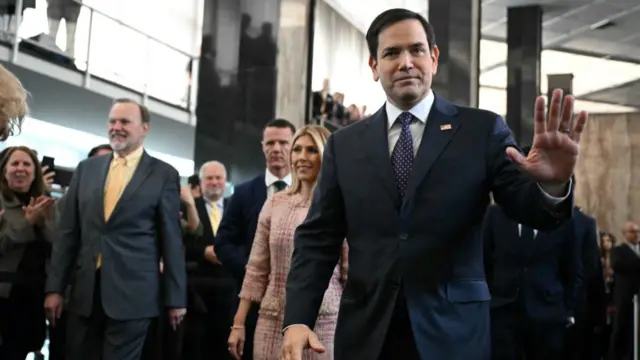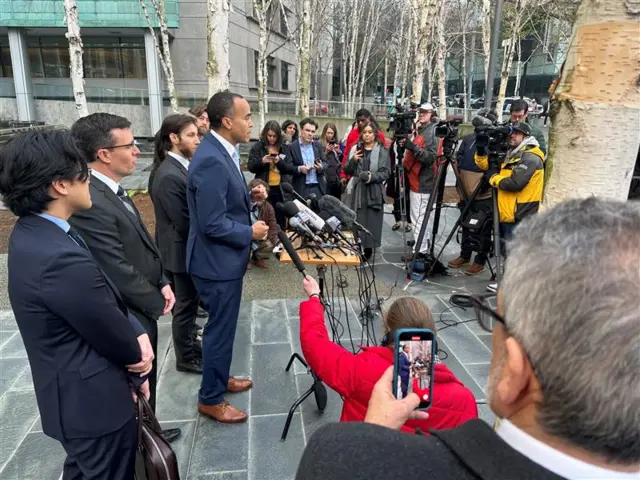Full list of executive orders just signedpublished at 20:51 GMT 23 January
Trump just signed a handful of executive orders in the Oval Office, here's what they were:
- Establishing a working group on cryptocurrency
- Establishing an advisory commission on science and technology
- Recognition of the Lumbee Tribe of North Carolina
- Pardoning of 23 anti-abortion protesters
- Declassifying the files related to the murders of JFK, RFK and MLK Jr.
We'll bring you more information shortly.








